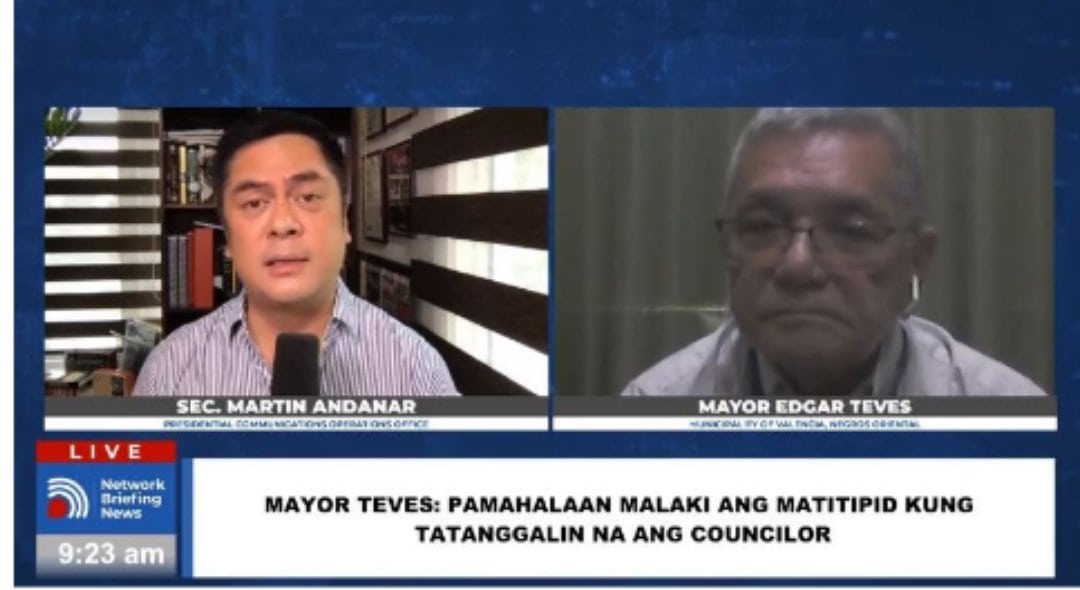By Ryan Sorote

A mayor from Negros Oriental wants to do away with city and municipal councilors to save on Internal Revenue Allotment (IRA) or subsidies from the national government.
Valencia Mayor Edgar Teves made the recommendation in an interview with Palace Communications Secretary Martin Andanar on the latter’s program over state-run PTV.
Teves claimed there was a “duplication” in the functions and pay of public officials. “The national government would save more if mawala na ‘yung mga councilors,” he said.
He said village chiefs or barangay chairmen could replace the councilors.
“The head of the barangay captains will automatically become the vice mayor,” said the mayor of Valencia, a first-class municipality west of the provincial capital Dumaguete City.
Teves also suggested making mayors sit as provincial board members.
“All of the mayors in each district will become the board member, representing all the municipalities (and cities). We don’t need to elect board members anymore,” Teves said.
The president of the mayor’s league should automatically become the vice governor, he added.
Negros Oriental Vice Governor Mark Macias declined to respond when sought for comment.
Teves said highly urbanized cities should no longer receive IRA and their shares given to poor municipalities.
“Tignan mo ang fifth- and sixth-class municipalities, talagang pulubi talaga sila. Dependent totally on IRA,” Teves said.
Johnjoan Mende, provincial director of the Department of the Interior and Local Government, said Teves’ suggestions were welcome but could not be “readily made possible without revising the Local Government Code (LGC) of 1991.”
Mende said he understood that the suggestion stemmed from the desire of local government units (LGUs) to have a more equitable way of allocating IRA.
“There are many proposals that are put forward in this regard under the constitutional reform (CORE) movement,” he said.
Mende said DILG’s CORE campaign suggested several additional bases for IRA allocation to address LGU needs, namely financial need, organizational capacity and resources.
“These suggestions also imply revisions in our constitution, not only with the LGC of 1991,” he said.
Under the Local Government Code, IRA distribution for provinces, cities, and municipalities are based on three factors: population (50%), land area (25%) and equal sharing (25%).
Barangays with a population of not less than 100 inhabitants will receive P80,000, while the rest will follow the population (60%) and equal sharing (40%) basis.